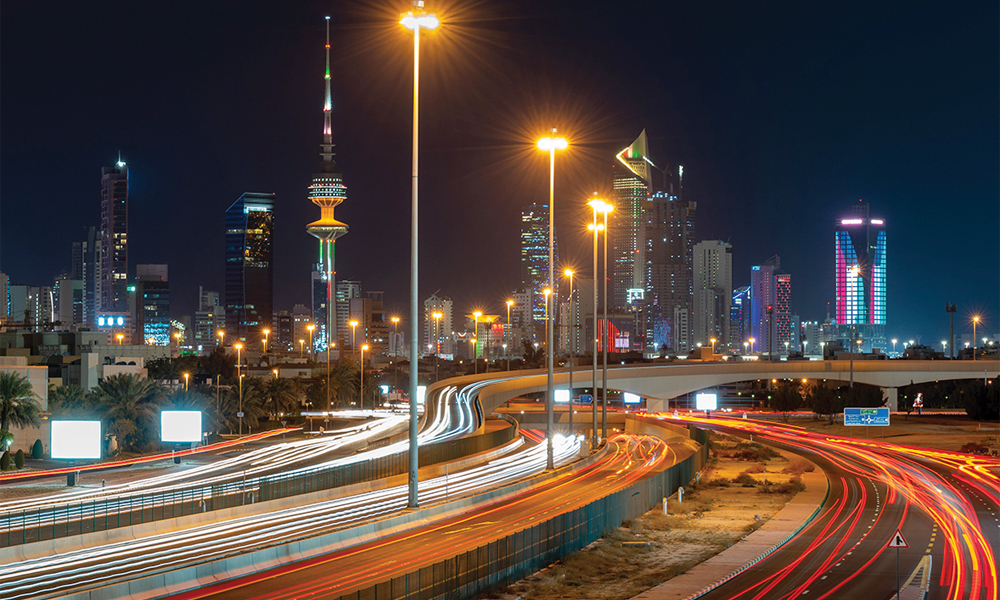By Sajeev K Peter
KUWAIT: Kuwait has set its development goal in right earnest to develop and modernize its infrastructure to improve the quality of life of its citizens and residents. Infrastructure, one of the key themes of its ‘New Kuwait’ 2035 vision, has now begun to pick up momentum after a pandemic-induced lull of over two years. Rising oil prices have also added much-needed impetus to the country’s drive to put infrastructure projects back on track.
The country, currently seeking to secure a position in the top 35 countries in the world by 2035 in all development indicators, has resumed work on key infrastructure projects. According to official estimates, the country has approved around $65 billion for infrastructure, health, environment and power projects for the 2021-2022 financial year, with 5 percent of them based on private public partnerships (PPPs).
According to recent reports, these projects include 14 major public projects with a total value of approximately $59 billion and four partnership projects worth nearly $3.2 billion. The projects comprise mainly the airport expansion, Silk City, island development, trans-Kuwait rail network and rail link with nearby Gulf countries, Mutlaa city, and the Clean Fuel Project.
It may be recalled that the central tenders committee was effectively shut during the lockdown and no new public tenders were released or submitted during the period. Now, the country has announced a plan to issue tenders for a $10-billion petrochemical project in 2022, according to recent reports. The project near Al-Zour oil refinery in south Kuwait has been split into three contracts and seven consortia have already been pre-qualified to bid.
Kuwait is currently the fourth largest projects market in the GCC after the UAE, Saudi Arabia, and Qatar. According to a MEED report, about $200 billion worth of projects are currently underway in Kuwait. Although there has been a spike in project investments in Kuwait over the last few years, one has to acknowledge the fact that the country’s share is relatively small in comparison to the project investments of other GCC countries. The combined value of construction projects in Kuwait makes up around 10 percent of all construction project values in the Gulf.
However, the pace of project awards is expected to pick up in the coming quarters. Historically, the local market has underperformed its potential. This has meant that despite its vast oil wealth and healthy fiscal position, the state rarely exceeds $15 billion in contract awards each year. As a result, with the exception of 2020, the country’s projects market has declined every year since 2015, in terms of the value of project contract awards.
Active projects
The country has currently over 700 active projects with a combined value of $230 billion. Once completed, these mega projects - 20 percent of them are near completion - will catapult the country into a modern city-state, bringing about a radical transformation to its information and communication technology (ICT), transportation, logistics, trade and power generation and transmission sectors.
Kuwait had set an ambitious goal of modernizing its infrastructure as part of its development plan years ago, although implementation of many such key projects began only recently. Having come out of years of inertia and moving past the traumatic COVID era, Kuwait is now on track to accomplish the vision to transform Kuwait into an international trade and financial hub and to achieve its 2035 ‘New Kuwait’ vision.
Aviation sector
The mega aviation project, intended to overhaul and modernize Kuwait’s ageing airport infrastructure, is probably the most ambitious project the country has undertaken in recent times. According to official estimates, the airport project could attract investments worth $12 billion and is expected to generate 15,000 jobs. With the opening of Terminal 4 at Kuwait International Airport as part of the first phase, Kuwait’s aviation industry has marked a milestone in its history. Kuwait Airways’ decision to restructure its $6 billion deal with Airbus to procure 31 planes is also an indication that Kuwait’s aviation sector is in for a big leap.
Today, in the post-COVID era, Kuwait has the top priority to speed up its ‘New Kuwait’ development projects, focusing on diversification and structural reforms. The recovery in oil prices has eased the burden on the country’s finances significantly and created a conducive atmosphere for the authorities to implement infrastructure projects, thus attracting new private investment and new industries to create jobs for the people.
However, much more needs to be done if Kuwait wants to realize its projects market potential. The state needs to find a way of getting greater private sector participation in the market and attract greater foreign investment. Without these, it is difficult to see how the projects market can reach its full potential.











